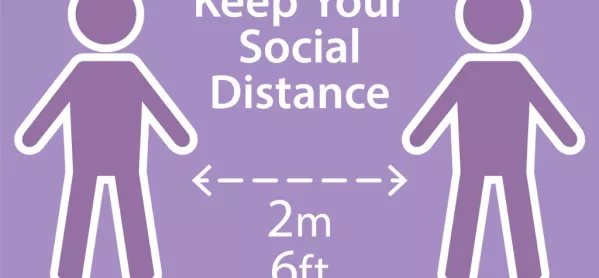The group charged with deciding the safest way to reopen Scottish schools is looking to the hubs that provide childcare for key workers and vulnerable pupils as it plans how to deliver social distancing when pupils return to school.
The Education Recovery Group - chaired by education secretary John Swinney - has also discussed using other community buildings, not just schools, in order to make physical distancing easier. Already, outdoor centres have offered their facilities “to expand the space available to [schools] for learning”.
It was also suggested at a group meeting that the first phase of any return to school should involve staff only.
Background: Sturgeon reveals who could return to school first
News: Classrooms may be redesigned to allow social distancing
Related: Education secretary wants to see more pupils in hubs
England: Nurseries offer to keep Reception pupils until 2021
Minutes for the meeting on 1 May state: “The overriding priority is health and safety of staff and pupils. Physical distancing in schools was highlighted as a challenge to be kept in mind throughout. Hubs currently running can provide valuable insight into the practicalities of physical distancing in schools.”
Other issues raised at the Education Recovery Group meeting and the initial meetings of 10 “workstreams” (see list below) now under way included the “need for out-of-school care that did not exist before the pandemic” if pupils attend school part time but families return to work, and the “likely increase” in parents choosing to defer entry into primary school.
Participants in the meeting - including Scottish government officials, education directors, primary and secondary headteacher bodies, and teaching unions - also raised “significant concern” about the survival of the early years sector.
The sustainability of private, voluntary and independent nurseries was raised by the “critical childcare” and “early learning and childcare” workstreams as a worry, given that many providers had closed to furlough staff and those that remained open to provide “critical childcare” were operating at a loss due to the low numbers of children attending.
The minutes continue: “There is a need to ensure that payments reflect cost, or providers will close. There is concern that during recovery, this problem will be exacerbated due to physical distancing limiting occupancy and income generation.”
Jane Malcolm, of the National Day Nurseries Association (NDNA) Scotland, told Tes Scotland that nurseries were in “a very precarious situation” and at least one nursery had closed for good, with many “on a knife edge”.
She added: “In order for these nurseries to reopen so more parents can return to work, they will need sufficient financial support and detailed guidance on keeping both children and employees safe and well.”
However, in the Education Recovery Group workstream charged with preparing for the coming academic year, it was highlighted that the pressure on nurseries was likely to increase as more parents delay their child’s entry to primary school.
Members of the “preparing for the next academic year” workstream highlighted the need to look at “managing [the] impact of [the] likely increase in the number of parents who defer entry of their children to P1 and knock on effects on ELC [early learning and childcare] settings (capacity/funding) and P1”.
Early years organisation Upstart Scotland has suggested in papers submitted to the Scottish Parliament’s Education and Skills Committee that all children aged 4 when they are due to start school in August should stay in nursery for another year. This would allow them to return to “a familiar setting” and would make social distancing easier to achieve for teachers, the organisation argues.
In England, a group of 70 early years providers has written to the government urging ministers to consider allowing children to stay on at nursery until at least January 2021 to help primary schools cope with social distancing rules.
The 10 workstreams the group has agreed to undertake are: term four learning; preparing for the next academic year; curriculum and assessment; supporting learners from disadvantaged backgrounds; pastoral care for CYP [children and young people]; workforce support; workforce planning; school improvement in a new context; critical childcare; and early learning and childcare.





